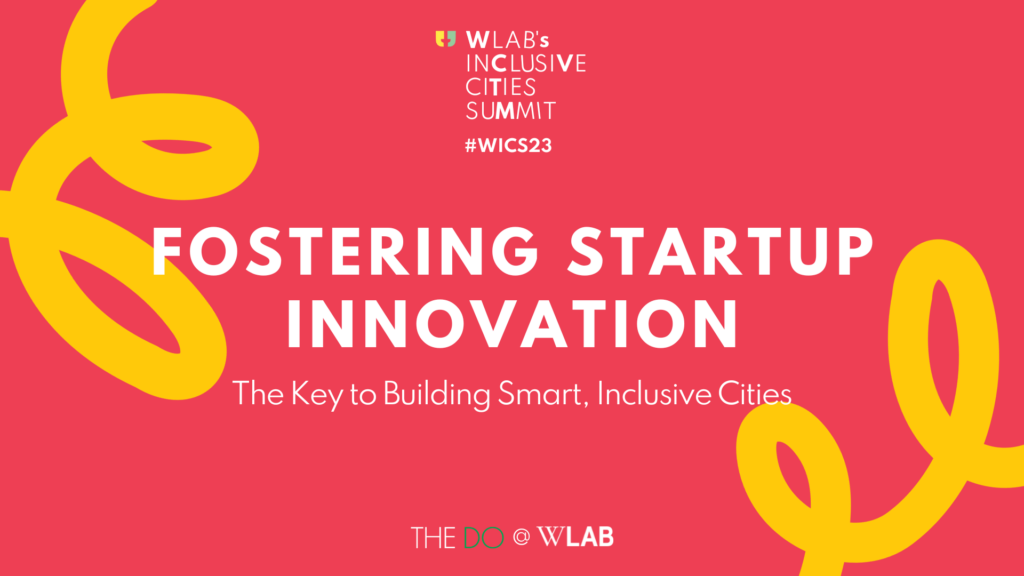In the dynamic landscape of urban development, the concept of a “smart city” has gained significant traction in recent years. Smart cities are more than just a futuristic vision; they represent a practical approach to solving urban challenges while enhancing the overall quality of life for residents. At the heart of this transformative journey lies the nexus between startup innovation and the pursuit of inclusive, sustainable urban environments.
The upcoming WLAB’s Inclusive Cities Summit 2023 is set to explore this critical intersection, where startups play a pivotal role in shaping the future of our cities. This article dives into the importance of startup innovation in the context of smart cities, why it matters, and the key stakeholders who can drive this transformation.
The Power of Startup Innovation in Smart Cities
1. Problem Solvers Extraordinaire: Startups thrive on innovation, making them natural problem solvers. In the realm of smart cities, where challenges like traffic congestion, resource management, and environmental sustainability abound, startups offer fresh perspectives and agile solutions. Whether it’s optimizing transportation networks, managing waste more efficiently, or enhancing energy consumption, startups have the potential to revolutionize urban living.
2. Agility and Adaptability: Smart cities are characterized by their ability to adapt and respond swiftly to changing circumstances. Startups, by nature, are agile and can pivot quickly. They are well-suited to experiment with cutting-edge technologies and approaches, providing cities with the flexibility to address emerging issues and opportunities promptly.
3. Inclusivity and Accessibility: A key tenet of smart cities is inclusivity, ensuring that benefits reach all citizens. Startups, particularly those focused on sustainability and social impact, are well-positioned to develop solutions that promote accessibility and equal opportunities. From affordable healthcare innovations to digital inclusion initiatives, startups can bridge the gap and create a more equitable urban landscape.
4. Economic Growth and Job Creation: Nurturing a thriving startup ecosystem doesn’t just benefit cities from a technological standpoint. It also drives economic growth and job creation. As startups expand, they create employment opportunities, stimulate investment, and contribute to a city’s overall prosperity.
Key Stakeholders in the Startup Ecosystem
To harness the potential of startup innovation in building smart, inclusive cities, a collaborative effort is essential. Key stakeholders must come together to facilitate this transformation:
1. Government Agencies: Municipal governments play a critical role in creating an enabling environment for startups. This includes providing regulatory clarity, offering financial incentives, and supporting innovation hubs where startups can thrive.
2. Investors: Angel investors, venture capitalists, and impact investors are instrumental in providing the necessary capital for startups to scale their operations. Their financial support fuels innovation and growth.
3. Incubators and Accelerators: Organizations that provide mentorship, resources, and networking opportunities are vital for startups’ success. They help startups refine their ideas, connect with potential partners, and navigate the complexities of entrepreneurship.
4. Corporate Partners: Collaboration between established companies and startups can drive innovation. Corporations can benefit from startup agility, while startups gain access to resources and a broader market.
5. Community Engagement: Engaging with the local community is essential for building smart cities that truly cater to residents’ needs. Public input and participation can guide the direction of startup innovation to align with community values.
As we look forward to the WLAB’s Inclusive Cities Summit 2023, we recognize the immense potential of startup innovation in creating smart, inclusive, and sustainable urban environments. By fostering collaboration among various stakeholders and embracing the innovative spirit of startups, we can pave the way for cities that are not only technologically advanced but also inclusive and people-centric.
Join our next #WICS23 panel and gain invaluable insights into navigating the fundraising landscape, from strategies to challenges and unique opportunities.
Prioritize what truly matters in securing funds for your impactful venture and thrive sustainably.


